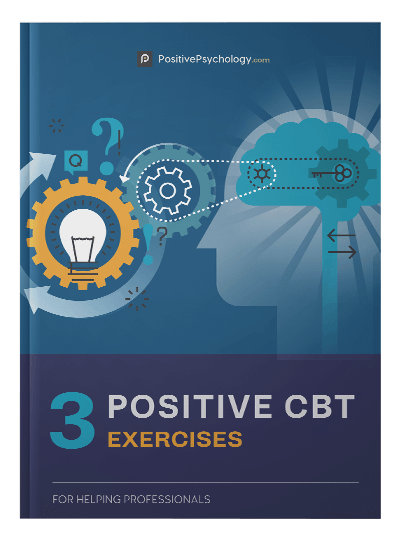Positive CBT
Positive cognitive-behavioral therapy, or positive CBT is the integration of positive psychology applications within the cognitive-behavioral therapy model.

Halo Effect: Why We Judge a Book by Its Cover
Even though we may consider ourselves logical and rational, it appears we are easily biased by a single incident or individual characteristic (Nicolau, Mellinas, & [...]

Sunk Cost Fallacy: Why We Can’t Let Go
If you’ve continued with a decision or an investment of time, money, or resources long after you should have stopped, you’ve succumbed to the ‘sunk [...]

Confirmation Bias: Seeing What We Want to Believe
Believe it or not, we can’t always trust what we see or hear. It seems our memory is influenced by our expectations (Eysenk & Keane, [...]

Behavior Therapy for Kids: 9 Fun Games and Techniques
In its many forms, behavior therapy is a powerful tool for treating a wide range of psychological disorders in children, aiming to increase their skills [...]

How to Do Activity Scheduling: 6 Templates & Worksheets
The activities we engage in influence how we feel. And yet, when depressed, clients often find themselves unable to do those things that bring enjoyment [...]

What Is Behavior Therapy? Your Ultimate Practitioner’s Guide
“Behavioral modification therapy is as easy as ABC: antecedents, behavior, consequences” was a catchphrase we used when I was a mental health nurse preparing [...]

Best Apps for Therapists & Psychologists to Use With Clients
As any experienced psychologist knows, clients tend to make most of their progress outside the therapy room, not in it. Therefore, it’s essential to equip [...]

How to Design Homework in CBT That Will Engage Your Clients
Homework assignments have been a central feature of the Cognitive-Behavioral Therapy (CBT) process since the 1970s (Kazantzis, 2005). Take-home assignments provide the opportunity to transfer [...]

The Birth of Online Behavioral Interventions
Behavioral interventions encourage new and increase existing positive behaviors while reducing or ending unhelpful ones (Cutler, 2004). They are used to manage and treat a [...]

What Is a Thought Diary in CBT? 5 Templates and Examples
Cognitive Behavioral Therapy (CBT) is based on the central tenet that our thoughts, attitudes, and beliefs determine how we feel and behave (Edelman, 2018). And [...]
